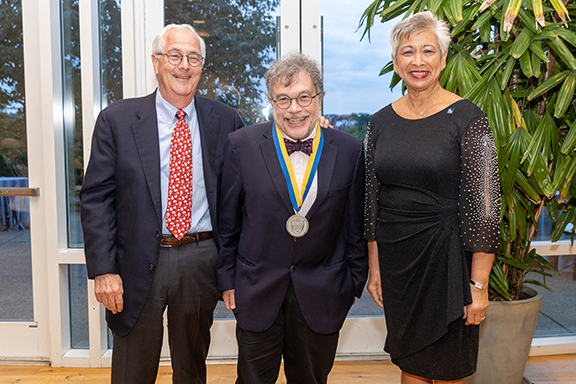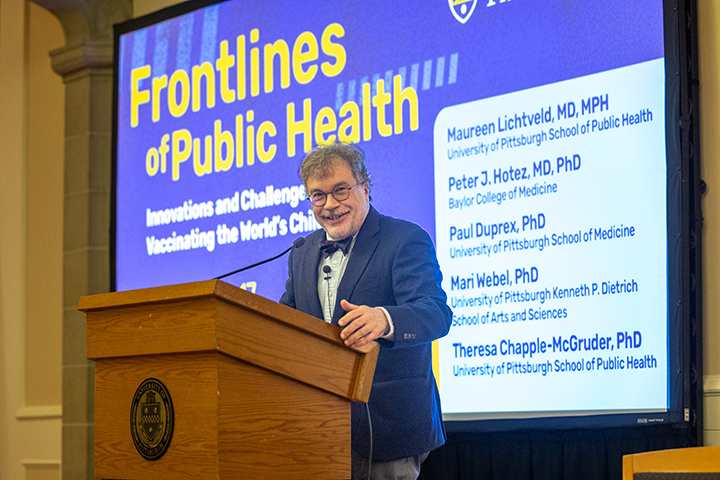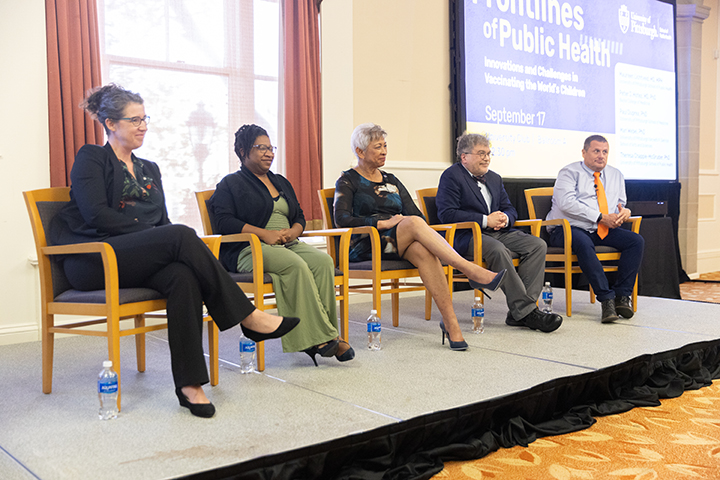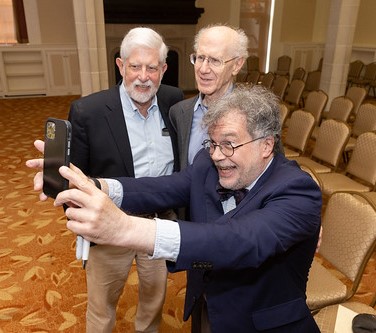Since his high school days, Peter Hotez, MD, PhD, dean of the National School of Tropical Medicine at Baylor College of Medicine, has considered University of Pittsburgh virologist Dr. Jonas Salk his personal hero for developing the first safe and effective vaccine for polio in 1955.
“As the kids today say, Salk was the GOAT [Greatest of All Time], and he was who I wanted to be,” admits Hotez, who was honored with the University of Pittsburgh School of Public Health’s 2024 Porter Prize at Phipps Conservatory and Botanical Gardens on September 17. “I actually got to meet him [Salk] in 1995 at a conference in San Diego, and he spent a lot of time with me. He was just amazing,” recalls Hotez, who received the award in honor of his extraordinary efforts in health promotion and disease prevention.

A hero in his own right, Hotez has consistently aimed to bridge the gap between science and accessibility, believing that lifesaving vaccines should not be limited to wealthier countries. His work became especially well-known during the COVID-19 pandemic, when he and his team rapidly developed a low-cost COVID-19 vaccine for global use.
Hotez is particularly recognized for his role in confronting neglected diseases like Chagas, hookworm and schistosomiasis. He discussed this research and science advocacy before an audience of faculty, staff and students at a “Frontlines of Public Health” symposium held prior to the Porter Prize event. Hotez was joined by a panel of experts, including School of Public Health Dean Maureen Lichtveld, MD, MPH; Paul Duprex, PhD, professor of microbiology and molecular genetics at Pitt’s School of Medicine; Mari Webel, PhD, associate professor in Pitt’s Department of History at the Dietrich School of Arts and Sciences; and Theresa Chapple-McGruder, PhD, associate professor in the school’s Department of Health Policy and Management and director of the Center for Health Equity.

Symposium panelists spoke of the challenges and opportunities of providing vaccines to people who need them most, echoing the importance of remaining focused and vigilant in engaging the public in these conversations.

“Even though it can take me to a dark corner of the world, combating anti-vaccine activism may be almost as important as making new vaccines for the world's poorest communities,” says Hotez, whose book, “The Deadly Rise of Anti Science: A Scientist’s Warning,” is the School of Public Health’s One Book, One Community selection for the 2024-25 academic year.
Though the subject matter was often serious, there was a lighthearted moment when Hotez, still in fan form, snapped a selfie with one of his idol’s three sons, Peter L. Salk, MD, president of the Jonas Salk Legacy Foundation and part-time professor at School of Public Health, along with the school’s Dean Emeritus Donald Burke.

-Clare Collins